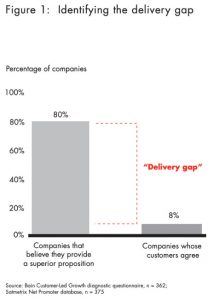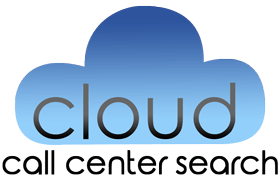The Cloud Technology You Need to Support Non-Agent Staff

How much of your technology investment is devoted to helping your agents? Most, if not all, I would bet.
Don’t worry if all your technology advantages empower your agents— it’s an important focus for any call center trying to deliver exceptional customer experiences.
We’ve even covered how enabling agents with technology is a vital pursuit.
But, if you set high demands on your non-agent staff, you need to empower them with technology to get the job done right. From managers to analysts, and quality teams to trainers, call center leaders need to do more to help the ones that help our agents.
Here are a few ideas on how to equip your non-agent staff with cloud solutions that can drive better outcomes in your organization:
CLOUD TECHNOLOGY THAT HELPS CALL CENTER MANAGERS
It’s easy to forget how much rests on the shoulders of our call center managers. While agents serve as the front line to customer experience, managers are responsible for the outcomes behind the scenes as well.
Modern managers must build a positive work culture, motivate individuals to succeed, manage operations, and guide the technology roadmap for the entire call center. And, with so many call centers shifting from cost centers to revenue generators, managers must justify every investment.
Further, the gap between companies that say they deliver exceptional service (80 percent) and the customers who agree (8 percent) represents a huge “delivery gap” managers must overcome, according to Bain & Company:

But what technology can managers leverage to impact their call center?
Cloud tools that harness business intelligence (BI) are quickly becoming the most impactful solutions to increase efficiency and boost ROI.
By helping to highlight key metrics across a call center, cloud BI tools give managers deeper insights that can pinpoint areas needing more attention.
BI tools can monitor agent performance, such as CSAT scores, hold times, or average call resolution, to help managers quickly intervene if agents are struggling and target necessary training.
Managers can also look to BI tools to support agent utilization, as call volume trends can be forecasted and refined to make data-informed staffing decisions when integrated into a quality WFM platform.
BI insights can even help managers drive at shared goals, such as gamification to see which agents close the most tickets or achieve the highest customer experience ratings in a given quarter.
Every manager is tasked with a handful of benchmarks to hit — and business intelligence solutions in the cloud can help refine a manager’s strategy for achieving their goals — no matter what they are.
Help Managers Hit More Goals with Call Center Technology
IMPROVING TECHNOLOGY FOR QUALITY MANAGEMENT TEAMS
Many QA and QM teams have upgraded their current quality management suite to the cloud — and they’re driving quick results.
By integrating with emerging cloud technologies, call centers can build quality monitoring programs that rapidly improve customer experience.
In a nutshell, your QA/QM teams are working to optimize the experience your agents can deliver. They look for key indicators, such as first call resolution or average hold time, to refine call center quality. But without technology in place to understand the problem and take actionable steps, quality teams are limited in their impact.
Here are the QA/QM features that can make your cloud technology limitless:
Voice Analytics — Quality teams can leverage voice analytics tools to detect agent stress, grade speech clarity, or even monitor script adherence from your agents. Voice analytics has come a long way in a short period of time by leveraging AI to improve accuracy and help identify the trends that need the most focus.
Call Recording — Automated call recording gives you a larger sample size of agent calls to review, as well as ensuring agent compliance and productivity. Call recordings can even be categorized for future reviews and team training. Recordings are nothing new, but with modern stereo recordings, voice analytics can better help identify unstructured data and trends within the customer’s voice.
Screen Recording & Analytics — By monitoring the on-screen activities of your agents, quality teams can drive agent adoption of key systems and ensure agents are utilizing their tools correctly. Your call center only benefits from technology that is being used and used correctly.
Quality management solutions, featuring voice, call, and screen analysis, uncover the real performance of your call center — and areas to improve.
Give Quality Teams the Cloud Technology They Deserve
WORKFORCE MANAGEMENT TECHNOLOGY THAT WORKS FOR YOU
Can your call center thrive without the right people in the right place at the right time?
If you’re ignoring the technology needs of your workforce management (WFM) team, maybe you already have your answer.
WFM makes sure your call center is primed to succeed by:
- Forecasting call center volume
- Scheduling staff to accommodate
- Managing intra-day challenges, such as:
- Technical failures
- Service outages
- Sudden call volume increases
- Unexpected staff vacancies
Truth is, most customers don’t feel the impact great WFM teams make, only the impact a bad team makes.
Great WFM teams need cloud solutions that help them make accurate, insightful projections to create a stable environment for agents to do their best work.
The best WFM solutions leverage artificial intelligence, machine learning, and automation to help WFM teams do their jobs with far fewer steps.
With less manual work, WFM teams can focus on the continuity of your call center, mapping out rapid response plans for technical issues or service outages, which will ensure disaster-proof, quality customer experiences 24/7.
Find the Technology to Keep Your Workforce on Track
TECHNOLOGY FOR YOUR CALL CENTER TRAINERS
Looking for a win-win technology investment?
Trainers that leverage a modern learning management system or LMS are far more effective at producing skilled agents and increasing retention, which means your call center saves money.
That’s because the average cost to train an agent is more than $3,000. And, with call center turnover at 30 percent, trainers can expect to sacrifice roughly $1,000 for each new agent trained. That’s unacceptable.
Worse yet, losing an agent can cost between $5,000-$10,000 in staffing costs and replacement training.
Keeping more skilled agents for longer is a huge challenge, but call center trainers equipped with an LMS platform can:
- Target training to the agents that need it
- Enrich training with robust, interactive features
- Track new-hire progress
- Give flexible, on-demand training access from anywhere
- Reduce costs with a centralized training portal
- Plus much more
Have Questions on LMS Cloud Technology for Trainers?
GIVE YOUR NON-AGENTS STAFF THE AGENT TREATMENT
Front-line agents are always going to be a key focus of your planning, but your call center success also hinges on the success of your non-agent staffers.
Leaders need to consider technology additions that not only help agents do their best work but also non-agent staff.
Whether management, analysis, training or quality assurance, the efforts of your behind-the-scenes staff will impact the experience your customers receive on every agent call.
Consult our industry experts for a no-risk, free consultation on the cloud solutions that you can quickly deploy to empower your non-agent staff.




